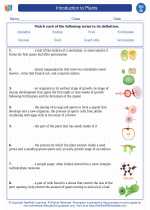Minute in Biology
In biology, a minute can have several different meanings depending on the context.
1. Minute as a Unit of Time
When used as a unit of time, a minute is equal to 60 seconds. It is often used to measure short durations in biological processes, such as the time taken for a chemical reaction to occur or the duration of specific events in cellular processes.
2. Minute as a Descriptor of Size
In biological contexts, "minute" can also be used as a descriptor of size, typically referring to something very small or tiny. For example, minute structures within cells, such as organelles or cellular components, may be described as "minute" in size.
3. Minute as a Mutation
Additionally, in genetics, a "minute" can refer to a specific type of mutation that affects the rate of development in Drosophila melanogaster (fruit flies). These mutations were first studied by Thomas Hunt Morgan and his colleagues and are characterized by a lengthened developmental time compared to normal flies.
Study Guide for Understanding "Minute" in Biology
- Define the different contexts in which the term "minute" is used in biology.
- Explain how the concept of a minute as a unit of time is relevant in biological research and experimentation.
- Discuss the significance of "minute" in describing small structures within biological systems and its relevance to understanding cellular function.
- Explore the concept of "minute" mutations in genetics and their implications for developmental biology and evolutionary studies.
- Compare and contrast the various uses of the term "minute" in biology and discuss how understanding these different meanings can contribute to a comprehensive understanding of biological processes.
◂Biology Worksheets and Study Guides High School. Introduction to plants
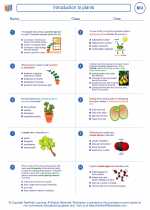
 Worksheet/Answer key
Worksheet/Answer key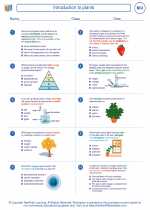
 Worksheet/Answer key
Worksheet/Answer key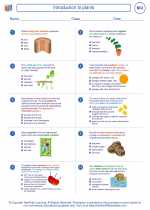
 Vocabulary/Answer key
Vocabulary/Answer key
 Vocabulary/Answer key
Vocabulary/Answer key
 Vocabulary/Answer key
Vocabulary/Answer key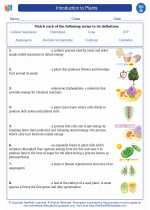
 Vocabulary/Answer key
Vocabulary/Answer key
 Vocabulary/Answer key
Vocabulary/Answer key